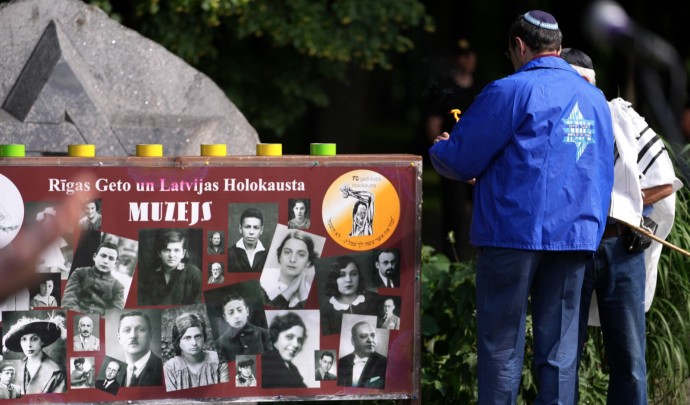December 1941 is an important period in Holocaust history. On November 30 and December 8, 1941, 25,000 Jews (most of them Latvian) were shot by German Einsatzgruppen (murder squads), assisted by Latvian police auxiliaries. Most of the killing took place at Rumbula Forest, about 13 km. south of Riga, the capital. Only the two-day massacre of 34,000 Jews at Babyn Yar in Ukraine in September 1941 exceeds this number.
One of those killed was Simon Dubnow, an important Jewish scholar of the modern age. Dubnow, a Russian-Jewish historian and political activist, whose life straddled the last decades of the 19th century and the early decades of the 20th, was a prolific journalist and historian. His 10-volume World History of the Jewish People, written in Russian and translated to German and English, is his most significant and lasting contribution, and represents one of the first comprehensive descriptions of Jewish history in the context of world history. It remained the accepted standard in the field for much of the 20th century.
Dubnow, a secular Jew, was, at best, ambivalent to the modern Zionist idea. He could not see how the approach proposed by Herzl and other Zionist leaders could solve the problems faced by the millions of Jews in Eastern Europe, nor did he think a Jewish state with a sizable population was a feasible goal.
In a letter he wrote in 1898 (see Middle East Forum, Yakov Faitelson, 2009), Dubnow describes the painfully slow growth of Jewish immigration to Palestine. He notes that even after 17 years of effort to encourage Jewish immigration and after the expenditure of vast sums (donated by Rothschild), only about 3,600 settlers made the journey. He goes on to predict that there will only be, at most, about a half million Jews in Palestine after 100 years.


Jewish skeptic
Dubnow was not the only Jewish skeptic when it came to Zionism. The Jewish Labor Bund (known as the Bund), founded in 1897, the same year as the First Zionist Congress organized by Herzl, was a secular Jewish socialist and anti-Zionist party that promoted Jewish autonomy and the interests of Jewish workers within the Russian Empire (Jewish Virtual Library). By the early 1920s the Bund had merged with the Communist Party in Russia, but it remained a significant political force in Poland until the Second World War.
Dubnow envisioned a form of Jewish self-governance for the Diaspora, which he called Jewish Autonomism. His model was the self-governing Jewish body known as the Council of Four Lands, which operated during the period of the Lithuanian-Polish Commonwealth from 1580 until 1764. This was an organization that Dubnow himself described in detail in his historical writings on the Jews of Russia and Poland.
The 1919 post-World War I Treaty of Versailles included provisions for the protection of minorities in Europe and encouraged the concept of ethnic diversity, but at the end of the day, the nationalism of the majority prevailed. The notion of Jewish autonomy in the Diaspora died with the Holocaust and the establishment of the State of Israel.
On December 8, 1941, Simon Dubnow, 81 years old and ailing and one of the foremost Jewish minds of the 20th century, was shot by a German soldier during the liquidation of the Riga Ghetto. In all, 70,000 (three quarters) of Latvia’s Jews were murdered during the Holocaust.
The writer, a fellow of the Royal Society of Canada, is a retired professor, University of Waterloo.
